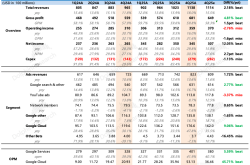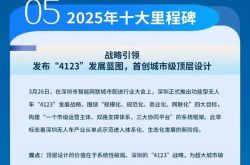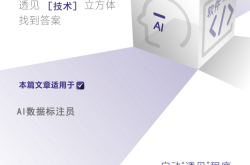Revolutionizing Baidu Search: Decade-Long Overhaul Amid Deep Anxiety and Boundless Possibilities
![]() 07/14 2025
07/14 2025
![]() 474
474
A decade ago, users typing "how to make braised pork with brown sauce" into Baidu's search box would retrieve only a handful of recipe links. Today, the same query prompts Baidu's Smart Box to output a tailored grocery list, cooking video tutorials, and even suggest nearby fresh food delivery services.
In early July, Baidu officially announced at AI Day that its search box has evolved into a "Smart Box." It has transformed from traditional keyword matching and webpage link lists into a new intelligent entry that supports inputs of up to 1,000 characters, multimodal interactions, and complex task processing.
This marks the biggest overhaul of Baidu Search in a decade. The iconic slogan "Just Baidu it, and you'll know" has taken on a whole new meaning in the summer of 2025.
Coincidentally, over a month ago, Google also officially announced at the I/O conference that AI search has "graduated" from the lab and will officially enter people's lives.
Both leading search giants, domestic and international, are "revolutionizing themselves." Kevin Kelly once said, "No matter what industry you are in, the truest threat to you is not from competitors within your industry but from those outside your industry that you can't see."
This holds true for the search industry as well. Nowadays, content platforms like Douyin and Xiaohongshu are vigorously promoting in-app search services. During the Paris Olympics, Xiaohongshu used the slogan "The Encyclopedia of Life for 300 Million People," directly targeting search scenarios. Meanwhile, AI-native players like DeepSeek and Perplexity AI are driving upgrades in multimodal search experiences.
Zhao Shiqi, General Manager of Baidu Search, admits that the changing environment is multifaceted, encompassing shifts in user needs and the competitive landscape. He candidly states that Baidu is not only competing with other search engines but also with other information supply products.
As the once-stable search industry faces disruptive changes, Baidu must consider what constitutes a super entry in the AI era and what kind of ticket it will hold to board the ship to the future.
Baidu Search's Decade-Long Overhaul
As the most significant overhaul of Baidu Search in a decade, the most evident change is that the "search box has gotten bigger."
The classic Baidu search box of the past could only support input of a few dozen characters. Now, the "Smart Box" can accommodate long texts exceeding 1,000 characters, greatly satisfying users' needs for describing complex problems. For instance, when planning a travel route, users can elaborate on their schedule, preferred attractions, budget constraints, etc., and the Smart Box can accurately understand the intent and provide a comprehensive planning scheme.
Simultaneously, the Smart Box supports file uploads, whether documents, spreadsheets, or images, which can all serve as the basis for search, broadening the dimensions of search. Furthermore, practical tools like AI writing and AI drawing are integrated into the Smart Box, allowing users to utilize them at any time during the search process, achieving a seamless transition from information acquisition to content creation.
As search has "grown," the search results page has naturally expanded as well. Specifically, the "BaiKan" feature has been upgraded, no longer limited to simply listing links but presenting the most useful content to users in the most suitable multimodal rich media format through a fusion of structure and rich media. When users search for "how to tell real crystal from fake crystal," the search results page integrates relevant latest videos, images, and text information to form a comprehensive answer, allowing users to see at a glance.
Moreover, the results page also embeds service tools and intelligent agents, further enhancing users' efficiency from information acquisition to task completion. For example, when searching for local restaurants, users can not only see the restaurant's distance, rating, and specialty dishes but also complete online reservations or orders directly on the search page.
This means that in this process, Baidu will invoke relevant MCPs (Multi-functional Cloud Platforms) to complete consumption behaviors such as ordering and group buying, possessing the ability for cross-platform linkage and internal and external ecosystem integration.
Li Yanhong once stated at the Create 2025 Developer Conference that MCP can be considered a "universal socket" connecting large models to the real world, enabling AI to directly invoke external tools and data sources, achieving a new leap from dialogue and question answering to task execution. According to official sources, Baidu Search's MCP service currently includes over 18,000 MCPs, covering various scenarios such as life, finance, and e-commerce.
Baidu Search's intelligent creation capabilities have also undergone a significant upgrade. Baidu has successively organized AI Day events to comprehensively showcase breakthroughs in related fields. Additionally, Baidu has released its self-developed video generation model Muse Steamer, which allows users to generate creative videos up to three minutes long with just one sentence, supporting operations like shot editing and customizing screen content, providing great convenience for video creation enthusiasts.
Baidu's AI Layout Blossoms in Multiple Areas
The changes in Baidu Search are not isolated events but are built on the solid foundation of Baidu's over a decade-long AI layout. From pioneering the establishment of the Natural Language Processing Department in 2010 to the high-profile deployment of the Apollo autonomous driving project in 2017 and the launch of the ERNIE Bot large model in 2023, Baidu has always been an "early bird" in the domestic AI field.
This year, Baidu's AI layout has begun to show a blossoming pattern in multiple areas. According to Baidu's Q1 2025 financial report, Baidu Intelligent Cloud's revenue grew by 42% year-on-year, surpassing the same-period performance of Google GCP (30%), Microsoft Intelligent Cloud (21%), Amazon AWS (17%), and Alibaba Cloud (18%).
Baidu AI's core competitiveness stems from the ecological integration of the Qianfan large model platform. According to official data from Baidu Intelligent Cloud, Qianfan has developed over 1 million applications, fine-tuned 45,000 industry models, and served over 400,000 customers, with a market penetration rate of over 60% in central enterprises.
In the field of autonomous driving, as of May 2025, Robotaxi has provided over 11 million trips globally. In the first quarter, Robotaxi provided over 1.4 million trips globally, a year-on-year increase of 75%. During the earnings call, Li Yanhong revealed that Robotaxi now covers 15 cities globally and deploys over 1,000 driverless vehicles.
Robotaxi is also accelerating its overseas layout, expanding to the Middle East, Europe, Southeast Asia, and other global regions, providing Chinese solutions for global autonomous driving services. In the current global Robotaxi competition, Baidu's Robotaxi has joined Tesla and Waymo to form the "top three in autonomous driving between China and the United States."
In terms of large models, Baidu was also one of the first companies globally to release a product comparable to ChatGPT. The ERNIE series focuses on closed-source and commercial prioritization. However, with the widespread attention garnered by the open-source model Deepseek, Baidu announced not long ago that it would open-source its latest large language model, ERNIE Bot 4.5 (ERNIE 4.5), in its entirety. This time, Baidu open-sourced 10 models simultaneously, covering mixed expert (MoE) models with 47B and 3B active parameters, dense models with 0.3B parameters, and more, encompassing various task requirements such as text and multimodal tasks, and achieving complete open-source of pre-training weights and inference code.
Baidu also simultaneously provides API services available on the Baidu Intelligent Cloud Qianfan large model platform. Currently, the ERNIE Bot 4.5 open-source series can also be downloaded and deployed on platforms like PaddlePaddle's Xinghe community and Hugging Face. This marks a transformation from a closed-source defender to an ecological integrator.
In the AI era, Baidu has been laying the groundwork for a long time, and this overhaul of Baidu Search is also a testament and result of that effort.
Changes in the Search World: Who Will Reign Supreme?
For a long time, the domestic and international search industry has been dominated by Google and Baidu. However, with the "islanding" of mobile internet apps and technological innovations brought about by AI, the traditional search market is being eroded.
While Baidu brings the biggest overhaul in a decade, Google is also painting the future of AI search. At the 2025 I/O Developer Conference, Google departed from the norm by spending a significant amount of time demonstrating application cases, introducing a new "AI Mode" that allows users to pose longer and more complex queries and provides precise answers through advanced reasoning capabilities. It can also handle complex tasks such as automated ticket purchase and virtual try-ons, attempting to shift from the traditional keyword matching model to an intelligent and interactive experience.
The two traditional search giants have almost tacitly made the same choice: to vigorously embrace AI.
It is undeniable that search has now arrived at a "singularity" moment of disruptive change.
New cross-border players like Douyin, Xiaohongshu, and WeChat Search are vigorously entering the search field. During the Paris Olympics, Xiaohongshu used the slogan "The Encyclopedia of Life for 300 Million People" to vigorously promote in-app search services. These content platforms provide users with unique search experiences by leveraging rich content ecosystems and personalized recommendation algorithms.
When users search for beauty products on Xiaohongshu, they can not only obtain product information but also see real user experiences, makeup tutorials, etc. This search model based on community atmosphere and user-generated content poses a certain competitive pressure on traditional search engines, taking away part of the search market share.
Meanwhile, AI-native players like DeepSeek and Perplexity AI are also attempting to disrupt the market landscape driven by innovative technology. DeepSeek has attracted a large number of developers and users with its open-source and low-cost strategy, promoting the popularization of AI technology. Perplexity AI has made breakthroughs in multimodal search experiences, allowing users to search not only through text but also through various methods such as images and voice, greatly enhancing the convenience and accuracy of search. Their emergence has broken the inherent technical advantages of traditional search engines, prompting the entire industry to accelerate its transformation towards AI.
According to leading global comprehensive data database Statista, Baidu's share of the Chinese search market was close to 90% in 2021, but by May 2024, Baidu's market share had dropped to 55.85%.
Zhao Shiqi, Vice President of Baidu and General Manager of Baidu Search, candidly stated, "Faced with such an environment, Baidu must first change its product. We can no longer view it with the original definition of a search engine product. We've always said internally to forget about search, but what we're really forgetting is the old form of search. The entire product form of search needs to undergo significant changes."
Zhao Shiqi's words demonstrate Baidu's great determination. From the accumulation of its own AI technology to the competitive landscape within the industry, Baidu Search is at a crossroads.
On the one hand, it needs to consolidate its technological advantages in the AI field, continuously optimizing the product experience of the Smart Box, search results page, etc., to make the upgraded search function more stable and efficient, retaining old users and attracting new ones. On the other hand, it must respond to challenges from cross-border newcomers like Douyin and Xiaohongshu and AI-native players by continuously exploring open ecosystem construction and technological innovation investment.
Zijin Finance believes that in this fierce competition, although Baidu has deep anxiety and needs to respond to multiple challenges, it also has infinite possibilities. At the technical level, Baidu is one of the few companies that excel in both AI and search, possessing the advantage of exploring the integration of AI models and search models.







